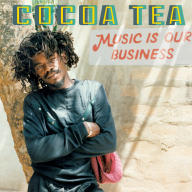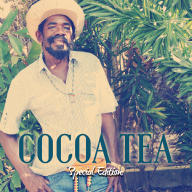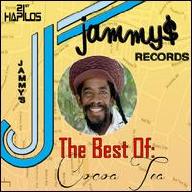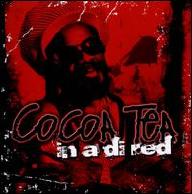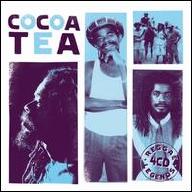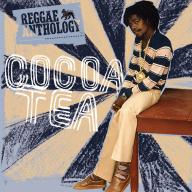In 1983, he moved to Kingston and adopted the performing name Cocoa Tea, after the Jamaican term for hot chocolate (later alternate spellings would include Coco Tea and Coco T). He soon met top dancehall producer Henry Junjo Lawes, and recorded a series of hit singles that included Rocking Dolly, I Lost My Sonia, Informer, and Can't Stop Cocoa Tea. His first album, Weh Dem a Go Do...Can't Stop Coco Tea, was released in 1985 and compiled many of his previous successes (a slightly different version, Rocking Dolly, was later issued in the U.S.). Lawes moved his operation to New York, and King Jammy became Tea's primary producer just as he was beginning to expand his focus to Rastafarian lyrical themes. The results included two albums, 1986's The Marshall and 1987's Come Again, and hit singles in those two title tracks, Tune In, and Settle Down, among others.
In 1989, a supergroup featuring Tea, Shabba Ranks, and Home T recorded together under the auspices of both King Jammy and Gussie Clarke. The resulting album, Holding On, was a major hit in Jamaica, as were the singles Pirates Anthem and Who She Love. Still an extremely viable solo artist, Tea recorded the biggest socially conscious hit of his career to date, Riker's Island, in 1991, and supported it with an album of the same name. His strident anti-Gulf War commentaries Oil Ting and No Blood for Oil were banned on radio in Jamaica and the U.K.; the latter was included on a second supergroup album, Another One for the Road, for which Cutty Ranks replaced Shabba. Tea's next major solo hit was the lovers rock tune Good Life, produced by Philip Fatis Burrell. He was able to maintain a steady, solid level of popularity into the late '90s, with hits for Burrell (1996's Israel King, 1997's King Sporty cover I'm Not a King) and Bobby Digital Dixon (1995's Holy Mount Zion), plus a collaboration with Cutty Ranks on the 1997 Bob Marley cover Waiting in Vain. Much of his mid-'90s material was collected on Holy Mount Zion, which was released in 1997 by the legendary Motown label. Further albums included 1998's One Way and 2001's Feel the Power. ~ Steve Huey, Rovi


